Submissions are accepted at any time. We generally prefer to begin working with an informal email query, which can serve as the basis for further dialogue. Following that, we prefer to work with a proposal, rather than a full manuscript. A proposal should be short (circa 4000 words) and include a proposed title, a brief synopsis, background information about the project, information about conceptual, theoretical, and methodological approach, a description of information covered chapter by chapter, as well as information on proposed length, format, delivery date, and on the author’s background. The proposal should also contain a very detailed and well thought-out body of information on proposed market, including potential for course adoption, and reflections on competing and related books. Finally the proposal should describe clearly the type and amount of material to be included on the proposed book’s website. We focus on titles in cultural studies, geography, anthropology, communication, and sociology.
A proposal must be accompanied by a CV, which ought to serve as evidence that the author is well recognized in his/her field and familiar with the process of book production.
While sample chapters from the proposed book are not required, we appreciate having the opportunity to judge the prospective author’s ability to write for broad audiences, as well as to create media or artistic content for the proposed book’s website.
FAQs
Q. Is there a deadline for book proposals?
A. No. The series is ongoing.
Q. How long can the books be?
A. We aim for shorter books, in the range of 75,000 words, with great appeal for course adoption as supplementary texts.
Q. Are methodological texts desirable? Or edited volumes collecting chapters on different fieldwork projects?
A. No, not for this series.
Q. What kind of multimedia material is desirable?
A. Anything which the web and related technologies can accommodate. There are no limitations other than those demanded by quality.
Q. Who is in charge of producing the website accompanying the book?
A. Authors can choose to work with the team employed by the series editor; or work alone using a website template provided for the book series; or work alone with their own preferred resources and material.
Q. Does Routledge release electronic versions of the books in this series, besides print copies?
A. Yes. Electronic books can accommodate hypermedia technologies in ways that printed books cannot. Authors are encouraged to think of ways in which e-books can innovate ethnographic representation.
Q. Are dissertations (or PhD theses) or revised dissertations acceptable?
A. Unfortunately not. Routledge has more than one series dedicated to research monographs such as dissertations, and this series is not ideal for that. The series aims to publish ethnographies that are great to teach with, and dissertations–no matter how revised–are generally written to meet research competencies exclusively.
Q. I have taken photos and maintained a blog while conducting my research; would that make for good enough material in addition to the book?
A. Probably not. It’s simply too easy to take pictures and keep a blog, and it does not often suffice. But if the photos were part of a visual ethnography, and/or if the photos had high aesthetic value then things might be different. The same with the blog: if the blog was just an open diary, then it might not be enough. But if it was rich and heavily multimodal, then it might be of value for the series.

